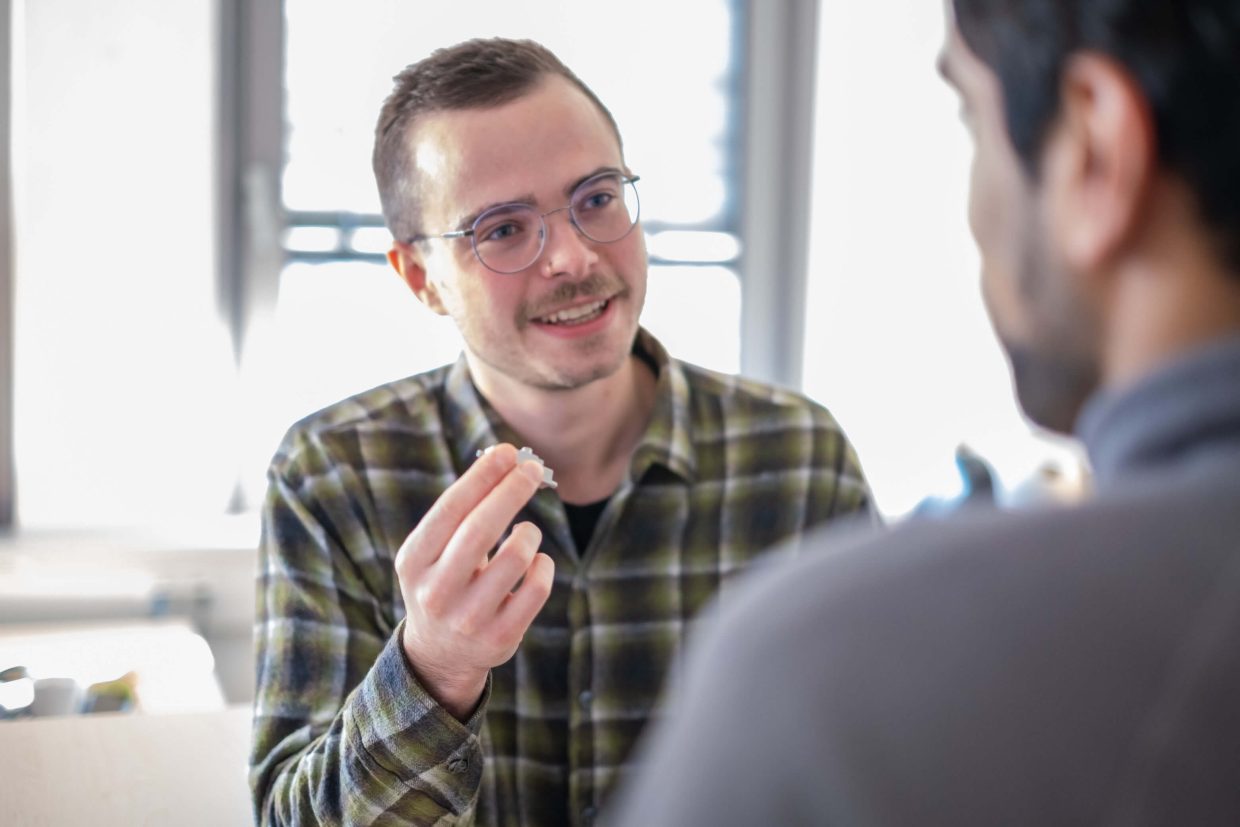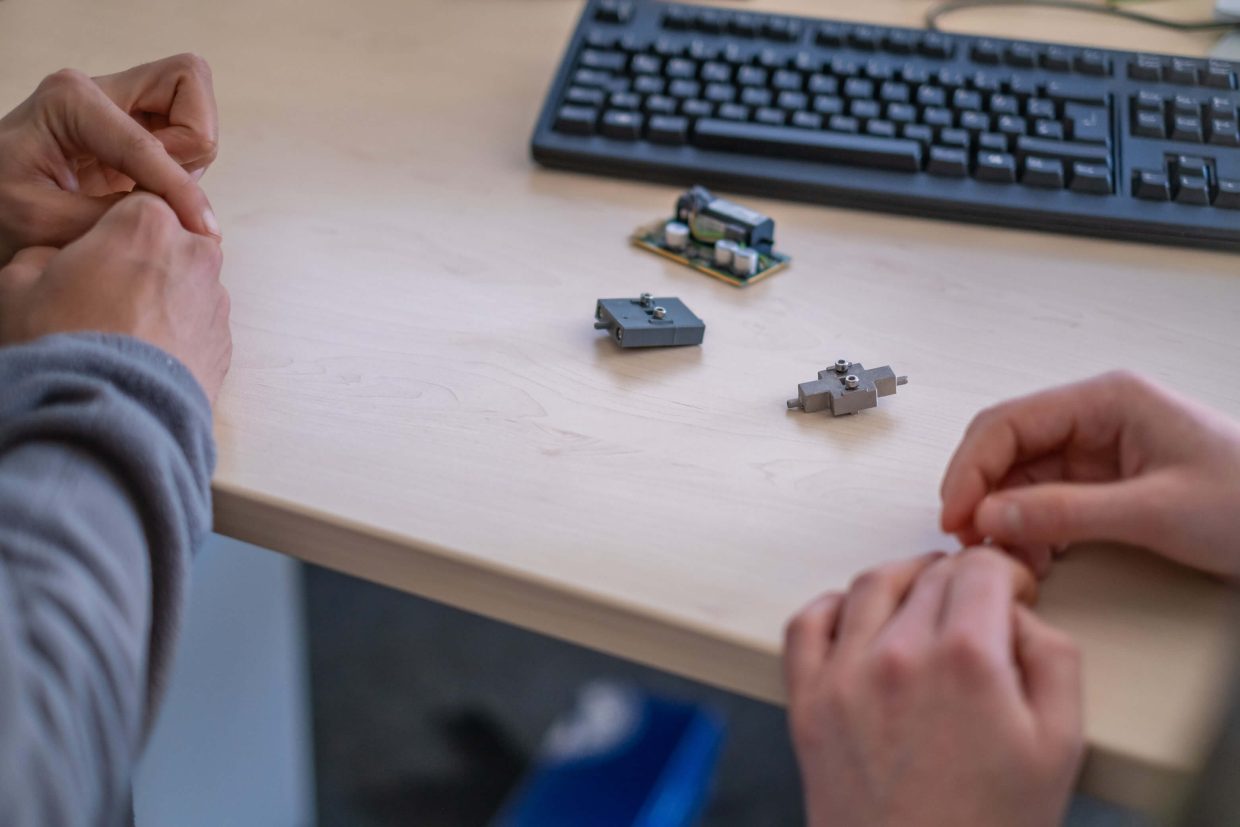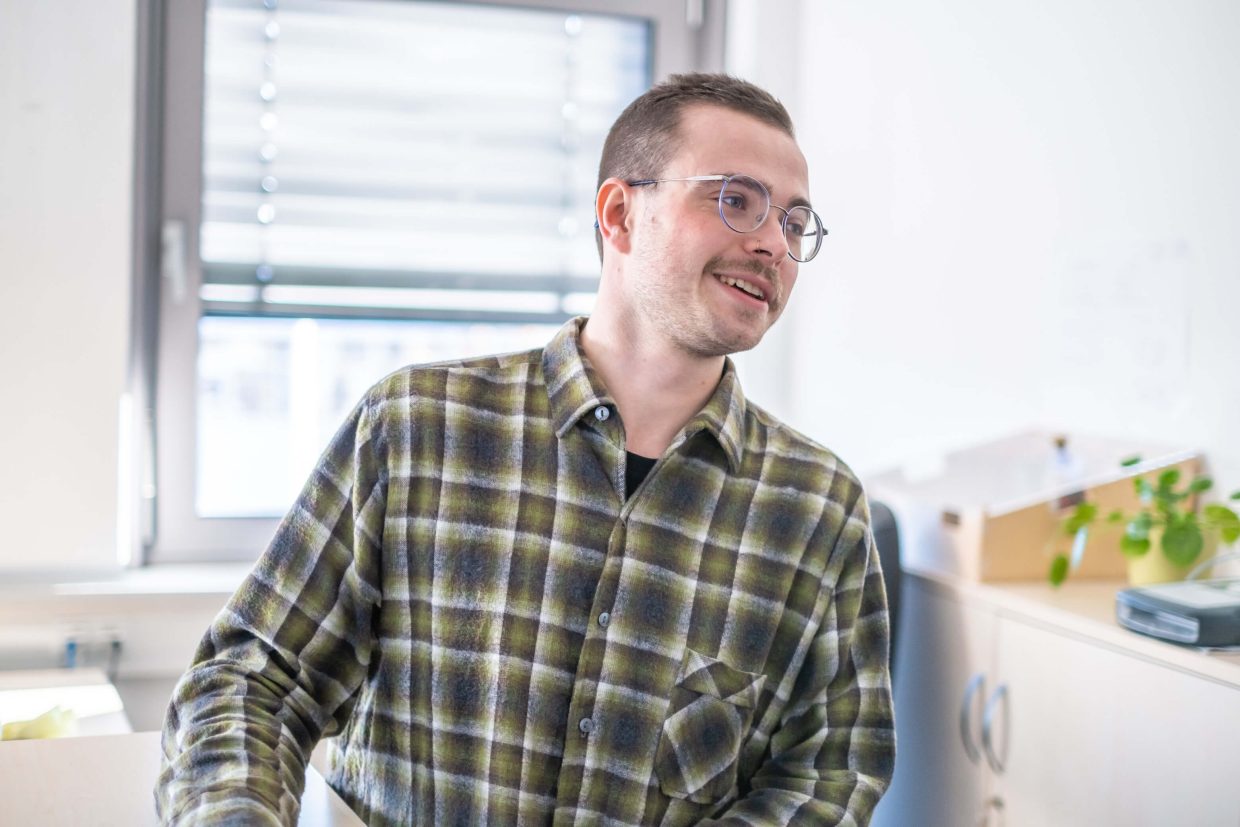Five questions for … Hannes

Corscience relies on the innovative power of young, fresh minds. Thanks to the new ideas and approaches of a master’s student from Nuremberg, we are able to create a new capnography module with a photoacoustic CO2 measuring system. It will perform just as well as the proven CAP201 module, but at a lower cost. In this interview we will be speaking to the person who came up with the idea, Hannes, about his development and day-to-day work at Corscience.
Hannes, you studied “Electronic and mechatronic systems” at the Nuremberg Institute of Technology; why did you decide to do a master’s in the field of medical technology? Why does this fascinate you?
For the reason that I decided to do a bachelor’s degree in medical technology. I always knew that professionally I wanted to go in a technical direction. Through my voluntary social year in the emergency services, I started to get interested in the medical background and the degree, or rather the field of medical technology, was the perfect way of combining this.
How did the idea of writing your thesis while working for Corscience’s development department come to you?
The job was advertised and overlapped with my interests. I was able to work across disciplines; a bit of software, a bit of hardware, a bit of mechanics and project planning to combine trades. Just the way I like it: not in-depth, but wide-ranging.
As I had already written my bachelor’s thesis at Corscience and was then employed as a working student, I knew what to expect. I may have changed departments, but I knew most of my colleagues. Especially for a thesis, where you work mostly alone, it is beneficial to have people around you from whom you can learn a lot. I knew that there were people just like that here.

Were your expectations met? Did you feel well supported? What was your experience of working with us?

My expectations were met. The topic was exciting, I learnt a lot, was supported when I needed it and when I didn’t, I was given plenty of space to work independently. Working together is one of the greatest strengths here at the company. You can talk to people from different departments at any time to gather input.
You are now working for us full-time. Why did you decide to stay with us?
Corscience is a medium-sized company of a manageable size. You can follow all the development stages of a medical device from start to finish here and know what your contribution is. I have the opportunity to talk to colleagues from other departments at any time and thus expand my interdisciplinary knowledge.
We have flexitime and can work from home. This helps achieve a better work-life balance. So there is fundamental trust in employees, everyone is somehow on the same wavelength and I am treated as an equal by superiors. Also, there are more women in management positions than in other technical companies. For me, these were good arguments in favor of Corscience.
What jobs do you do for us?
I ended up in system testing. Building on my time as a working student, I am involved with (automated) test benches and testing complete systems. For example, we not only test the defibrillator circuit board, but also an assembled AED during the system test. Internally, we are the department that puts the devices through their paces again as the last step before approval in order to uncover any remaining faults. The work ranges from creating test specifications to expanding test automation and carrying out tests. By working at system level, there is a lively exchange with the hardware, software and mechanical trades and you get a bird’s eye view of the project. That is exactly what I wanted.